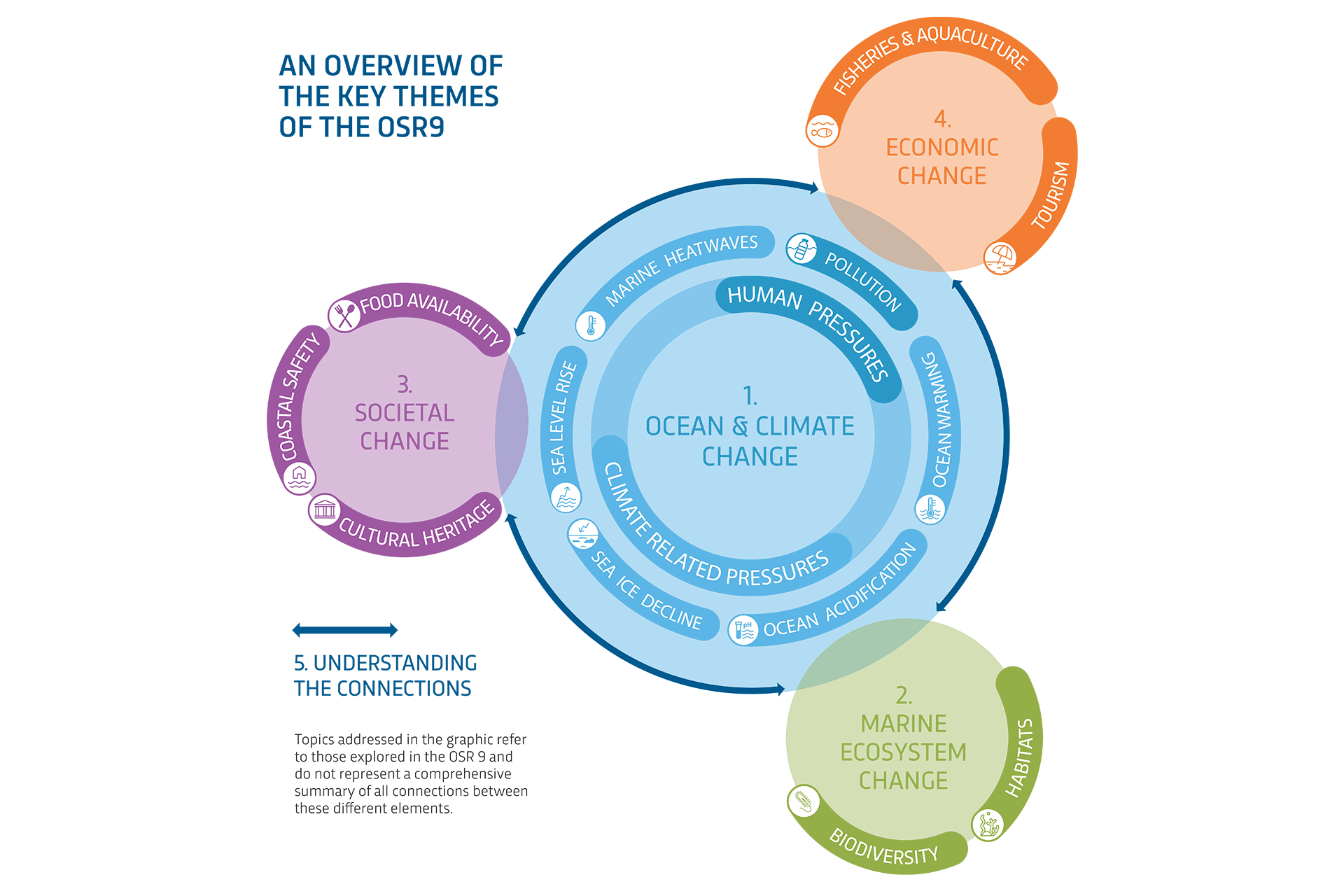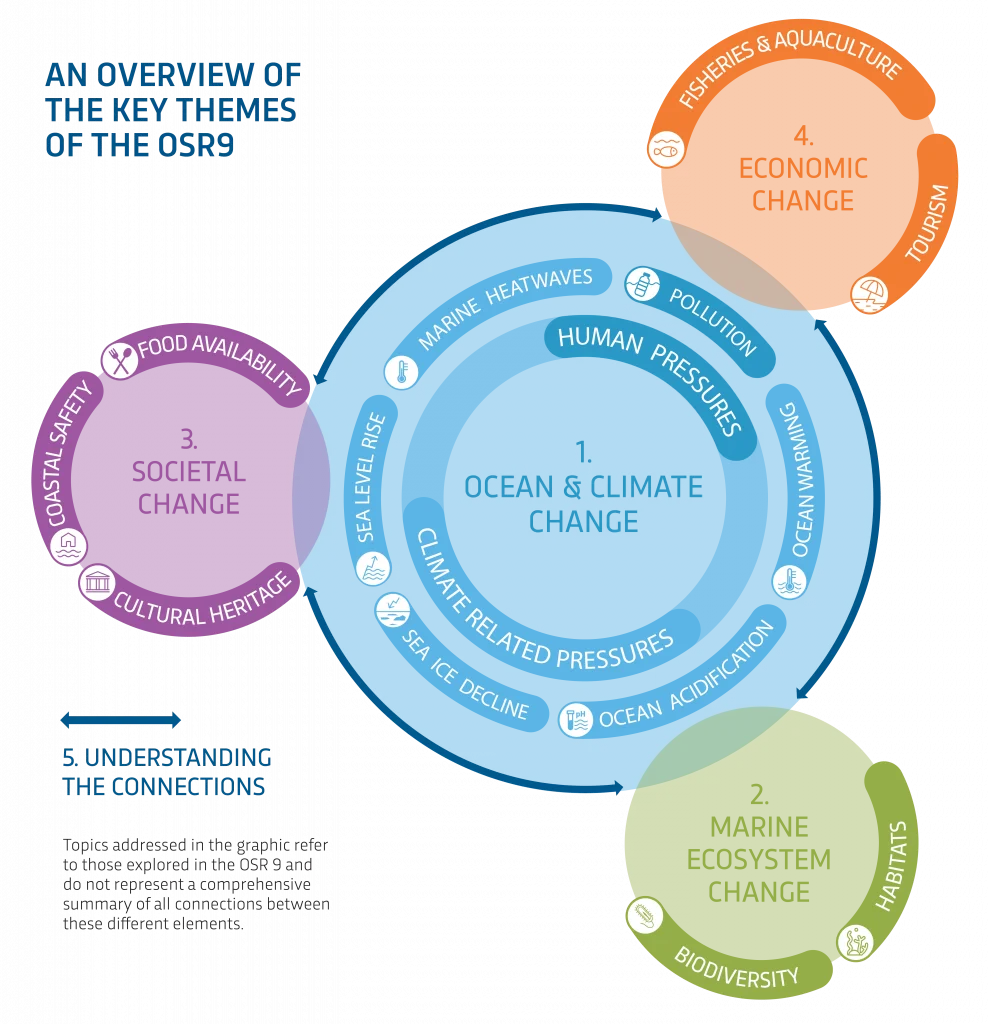Copernicus Ocean State Report 9 (2025)
- News item

An international example, the latest Copernicus Ocean State Report reveals that no part of the ocean is untouched by the combined pressures of climate change, biodiversity loss, and pollution, with serious implications for global fisheries and aquaculture.
In 2023–2024, the world’s oceans recorded unprecedented heatwaves, reaching 21°C globally and triggering widespread ecological disruption. These temperature extremes are driving species migrations, habitat loss, and reduced productivity in key fishing grounds.
In Europe, marine heatwaves have already caused major economic and ecological losses, such as the collapse of clam production in Italy’s Po River delta due to invasive blue crabs thriving in warmer waters. Across the Mediterranean, rising temperatures of up to +4.3°C above average have fuelled invasive species outbreaks, harming both wild fisheries and aquaculture operations.
The report warns that ocean warming and acidification are occurring faster in many regions where aquaculture production is highest, increasing stress on shellfish and finfish industries. Meanwhile, coastal infrastructure and cultural heritage vital to fishing communities are at growing risk from sea-level rise and erosion.
By highlighting these interconnected impacts, the report underscores the urgent need for regional ocean monitoring, adaptive management, and climate-ready aquaculture practices to safeguard food security, livelihoods, and the health of marine ecosystems.
